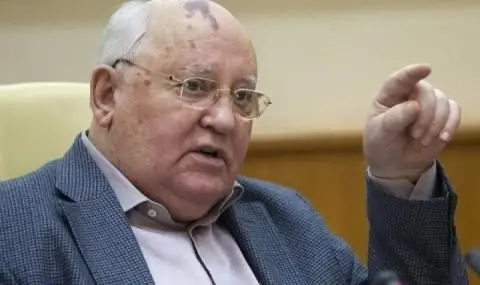In the midst of the situation that arose in early November 1989, the Italian Prime Minister Giulio Andreotti warned that in the event of a new German unification, there would be a danger of a new pan-Germanism. The Dutch Prime Minister at the time - Ruud Lubbers - was also against it. According to François Mitterrand, Europe "is not ripe for such a step". Poland is also not enthusiastic about the idea. British Prime Minister Margaret Thatcher is the most categorical at the beginning - she will not allow the unification of Germany, even asking the last Soviet President Mikhail Gorbachev, the military contingent of the USSR to remain in the GDR as long as possible, dariknews.bg recalls. The US ruled out the possibility of holding international talks on unification if a future unified Germany remained outside NATO.
The first step on the subject was taken by Nikolai Portugalov of the KGB, talking as a special Soviet envoy and representative with Chancellor Helmut Kohl's advisor - Horst Telchik. Portugalov gave his agreement in principle to unification, but under two important conditions - Germany's withdrawal from NATO and the withdrawal of American nuclear weapons from the country's territory. The US, understanding the Soviet conditions, for its part set its own insurmountable obstacle - Germany being in NATO.
On January 20, 1990, Thatcher and Mitterrand came to the conclusion that Romania and Bulgaria remained for Anglo-French influence in Eastern Europe, because Poland, Czechoslovakia and Hungary would inevitably fall under future German dominance. On February 10, 1990 Mikhail Gorbachev declared that the Germans themselves must decide which path to take.
The beginning of the negotiations for the international rehabilitation of the fall of the Berlin Wall was laid during the conference on the topic of "Open Skies", held in Ottawa on February 13, 1990. The negotiations in the "two plus four" format were held in four rounds: May 5 in Bonn, June 22 in Berlin, July 17 in Paris (with the participation of Poland) and September 12 in Moscow. During the negotiations, the question of the changed status quo remained open. On September 10, 1990 During a telephone conversation between the last Soviet President Mikhail Gorbachev and Chancellor Helmut Kohl, an agreement was reached on the withdrawal of Soviet troops from the GDR by the end of 1994, with Germany covering the costs.
The negotiations were difficult, especially because of the position of France and Great Britain on them. These two countries insisted that the unification process be postponed for a longer period of time, fearing excessive German strengthening on the Old Continent. The British government made a last desperate attempt to delay the unification process by demanding, unacceptable to the Soviet side, the demand that British troops be allowed to conduct military exercises on the territory of the former GDR after unification. The Soviet side categorically rejected this demand. Ultimately, on the night of September 11-12, Secretary of State James Baker, at the insistence of his German counterpart Hans-Dietrich Genscher, managed to convince the British side to withdraw this request, which removed the last diplomatic obstacle to international recognition of the unification of Germany.
The treaty that finally decided on the unification of Germany by the Allies in World War II was ratified by all parties to it, with the last ratification being by the Supreme Soviet of the USSR on March 4, 1991. The document recognized the sovereignty of the Federal Republic of Germany (FRG) over the former German Democratic Republic (GDR) as a result of negotiations in the “two plus four” format - the FRG and the GDR, and the four great powers, winners of World War II.
